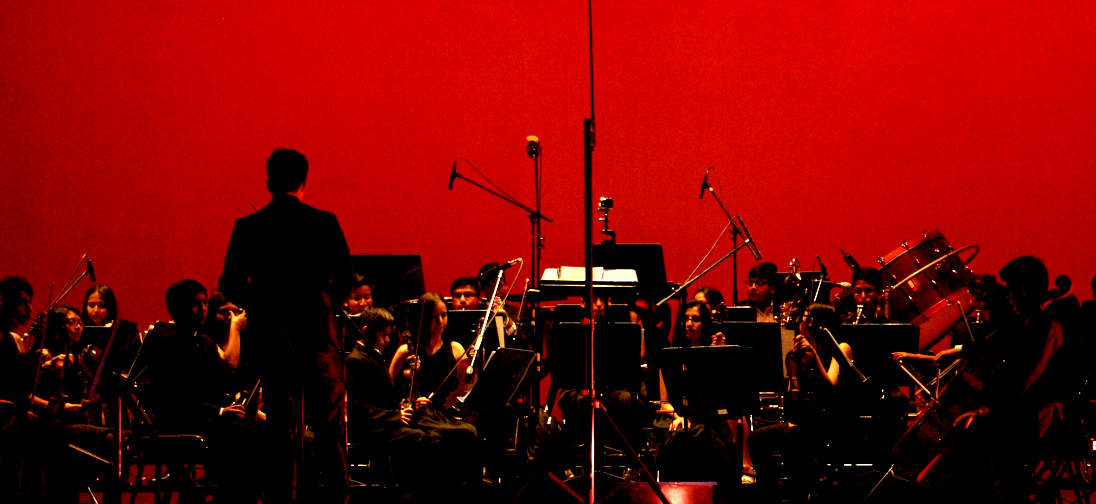
Teens and culture
Talking about culture
Intermediate English dialogue

 "Theatre" is
definitely culture; but what about cinema, or pop music?
"Theatre" is
definitely culture; but what about cinema, or pop music?James Porter: What does the word "culture" mean to you?
SIMON: Culture?
James Porter: Yes, culture!
ERIC: Don't ask him, he doesn't know what the word means!
SIMON: Shut up, you! Of course I do. I know quite a lot about culture....
ERIC: O.K. then, what?
SIMON: Well it's reading, and music, and the arts, and so on. Cinema.....
ERIC: Yes, it's anything like that.
James Porter: Right. And do either of you take part in any cultural activities?
SIMON: Yes.... I watch quite a few cultural programmes on telly and Youtube. And I like drawing too.
ERIC: Well I watch quite a lot of films, mainly on the box. That's cultural, isn't it ?
SIMON: It depends on the film really, doesn't it? I mean, some films are cultural, but there's plenty that aren't. I mean, you couldn't call Barbie culture, could you?
ERIC: Why not ? Of course it's culture.
James Porter: What about Oppenheimer? Was that culture?
ERIC Oh absolutely! It was really cool!
SIMON: Yeah, I agree. I mean it was a true story really, wasn't it? And it was history. It made you think about things. It wasn't just action.
James Porter: And what about other forms of culture? Do you ever go to the theatre, or to a concert?
ERIC: I've only ever been to the theatre once, and that was with school; I thought it was a waste of time.
James Porter: Your parents don't go to the theatre?
ERIC: No, they never go out.... except to the pub.
SIMON: We usually go to the panto at Christmas; but I've only been to the theatre once apart from that, as far as I can remember. That was to see the Mousetrap *. It was great!
CLARE: I love going to the theatre. I wish I could go more often, but I really have to push my mum sometimes. What I like best are musicals.... I saw Les Mis** in London a couple of years ago. It was fabulous; and I've seen Phantom of the Opera too. That was really cool.
James Porter: So you enjoy music, then; do you play in a school orchestra, or anything?
CLARE: No. Sometimes I wish I did. My sister plays the violin in the school orchestra, but I only ever learned to play the recorder when I was little, that's all. But I love music, very much. I like all kinds of music.... well most kinds. I can't say I'm really into jazz all that much.

James Porter: What about pop music? Is that culture? What d'you think, Rebecca?
REBECCA: Yeah, of course ....... Most of it, anyway. I'm not sure if you can call some kinds of rap "culture"; but pop's a sort of culture, isn't it?
SIMON: Oh definitely. It's just different. Rap's culture too. Just different.
REBECCA: Yes, I suppose so; I mean something can be cultural for one person, but awful for someone else, can't it?.
ERIC: Like rap....
REBECCA: Well yes.... if you look at it like that.
James Porter: And reading? Do any of you read books, for your own pleasure?
CLARE: Oh yes, I read lots. I love reading.
James Porter: Eric ?
ERIC: Not much. I read the Harry Potter books, but I don't really like books. I prefer video games. Books are too slow, normally.
James Porter: And d'you think you get enough culture?
CLARE: Not really....
ERIC: It depends what you mean by culture, doesn't it? I think it'd be better if they made it more interesting at school. But they make it boring, so you just switch off.
CLARE: Don't be ridiculous! It's you that think it's boring, that's all. It isn't really! You just don't try to enjoy it.
* The Mousetrap - A very famous detective thriller by Agatha Christie** Les Mis - Les Misérables, a very popular London musical, fropm the book by Victor Hugo

the box - television - plenty: quite a lot - panto: pantomime, a traditional comedy - enjoy : appreciate, like - recorder: a simple type of flute - be into : be interested in, like - switch off: stop paying attention - -
Return to Linguapress site index
Printing: Optimized for printing
Copyright © Linguapress. Do not copy this document to any other website
Copying permitted for personal study, or by teachers for use with their students
Student Worksheet
Grammar : Note the use of “question tags” in the dialogue. For example:It depends on the film, doesn’t it?
Now select the appropriate tags for these statements..2. That’s a film by Steven Spielberg, ?
3. You don’t really believe what he says, ?
4. They like going to the cinema on Saturdays, ?
5. Last night you went to the theatre ?
6. Some people don’t like any kinds of culture, ?
7. Oppenheimer was a very exciting film, ?
8. They’re going to make a new film about Robin Hood, ?
For teachers
Ideas for the classroom:Oral work; Take this dialogue in class, alternating the roles frequently to involve as many students as possible. Concentrate on sentence stress and intonation if possible. Note in particular the tag questions.
Make sure that students place the apostrophe in the correct place in expressions like don't or isn't .
Remind students of the rule for tags: a tag repeats the base auxiliary that was used or implied, with a negative/affirmative transformation, as in : You've done that, haven't you.
Stressing of tags depends on the nature of the tag.
Most tags are not real questions; the speaker is expressing a point of view, and is just asking for confirmation, as in
You couldn't call Barbie culture, could you?
"Normal" tags such as this, whether they are affirmative or negative, take a falling stress.
You / couldn't call Barbie \ culture, \ could you?
Occasionally, tags really have an interrogative value; the speaker is asking a question, as in
It depends what you mean by culture, doesn't it?
In these cases, the tag takes a rising intonation.
It de/pends what you mean by \culture, doesn't / it?
For more on tags see A Descriptive Grammar of English §4.4 , pages 164 - 166
Other ideas?
EFL teachers: Help develop this resource by contributing extra teaching materials or exercises.
To contribute click here for further details
Originally Adapted from a discussion originally published in Horizon
the low-intermediate
level
English
newsmagazine.
Republication on other websites or in print is not authorised
| Linguapress; home | Découvrez l'Angleterre (en français) | Discover Britain |

If you like this page and want to share it with others, just share a link, don't copy.
This teaching resource is © copyright Linguapress renewed 2024
Republication on other websites or in print is not authorised
Copying permitted for personal study, or by teachers for use with their students.


